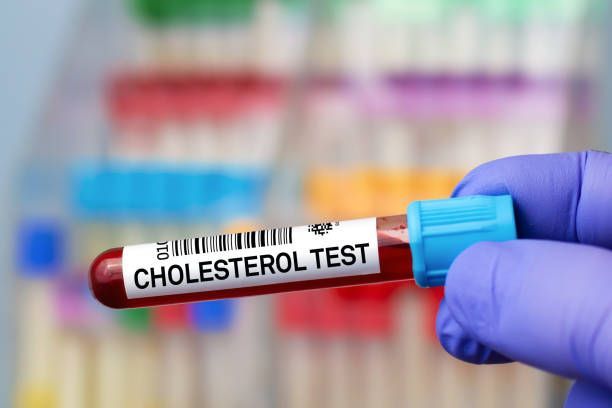Why You Shouldn't Ignore Persistent Nosebleeds
Nosebleeds, also known as epistaxis, are common and can happen to anyone. They often seem harmless and stop on their own within a few minutes. However, if you experience frequent or persistent nosebleeds, it may be a sign of an underlying health issue that requires medical attention.
In this blog, we’ll explore the common causes of nosebleeds, potential warning signs, treatment options, and when to seek urgent care.
Understanding Nosebleeds: Why Do They Happen?
Nosebleeds occur when the tiny blood vessels inside the nasal passages become irritated or damaged, leading to bleeding.
They are typically classified into two types:
- Anterior Nosebleeds: The most common type, occurring in the front part of the nose. These usually result from dryness, irritation, or minor injuries.
- Posterior Nosebleeds: These originate deeper in the nose and tend to be more severe. They may require medical intervention, especially in older adults or individuals with underlying conditions.
Common Causes of Nosebleeds
Several factors can contribute to recurrent or prolonged nosebleeds, including:

1. Dry Air and Irritants
Exposure to dry indoor air, especially during winter, can dry out the nasal membranes, making them more prone to bleeding.
Other irritants include:
- Allergens like pollen or dust
- Chemical irritants such as smoke and strong odors
- Frequent nose blowing due to colds or allergies
2. Nose Injuries or Trauma
Simple actions like picking your nose, blowing too hard, or getting hit in the face can break delicate blood vessels inside the nose. If you experience nosebleeds after an injury, it’s essential to monitor for symptoms like swelling or difficulty breathing.
3. Underlying Health Conditions
Certain medical conditions can contribute to persistent nosebleeds, including:
- High blood pressure (hypertension): Increased pressure can make blood vessels in the nose more likely to rupture.
- Blood clotting disorders: Conditions like hemophilia or thrombocytopenia affect the blood’s ability to clot properly.
- Liver disease: The liver plays a role in blood clotting, and dysfunction can lead to frequent bleeding episodes.
4. Medications That Affect Clotting
Certain blood-thinning medications can make nosebleeds more frequent or harder to stop.
These include:
- Aspirin and ibuprofen (NSAIDs)
- Anticoagulants like warfarin or heparin
- Nasal sprays with steroids, which can cause thinning of the nasal lining
If you're taking these medications and notice frequent nosebleeds, consult your doctor about potential adjustments.
5. Structural Issues in the Nose
Conditions affecting the structure of the nose, such as deviated septum or nasal polyps, can lead to chronic irritation and bleeding.
Symptoms That Indicate a More Serious Issue

While occasional nosebleeds are usually harmless, certain symptoms indicate a more significant health concern:
- Nosebleeds lasting longer than 20 minutes
- Bleeding from both nostrils at the same time
- Frequent nosebleeds without an obvious cause
- Dizziness, weakness, or rapid heartbeat accompanying nosebleeds
- Nosebleeds following a head injury, which could indicate a skull fracture
If you experience any of these symptoms, seek urgent medical care immediately.
How to Stop a Nosebleed at Home
For most minor nosebleeds, follow these simple steps to control bleeding:
- Stay Calm and Sit Upright – Tilting your head back can cause blood to flow down the throat, leading to choking or nausea. Instead, lean slightly forward.
- Pinch Your Nose – Use your thumb and index finger to pinch your nostrils together and breathe through your mouth.
- Apply Cold Compress – Placing an ice pack or cold compress on the bridge of your nose can constrict blood vessels and reduce bleeding.
- Avoid Lying Down or Talking – Keeping your head elevated and staying still can help blood clot faster.
Medical Treatment for Persistent Nosebleeds
If at-home methods don’t stop your nosebleed, a healthcare provider may recommend the following treatments:
1. Nasal Packing
Doctors may insert gauze or nasal tampons to apply pressure inside the nose and stop bleeding.
2. Cauterization
For recurrent bleeding, a healthcare provider may use a chemical or electrical device to seal the blood vessel and prevent future nosebleeds.
3. Medication Adjustments
If certain medications are contributing to frequent nosebleeds, your doctor may adjust the dosage or recommend alternative treatments.
4. Surgery (For Structural Issues)
In cases where a deviated septum or nasal polyps are the cause, surgical intervention may be necessary.
Preventing Frequent Nosebleeds
To reduce the likelihood of recurrent nosebleeds, consider these preventive measures:
- Use a Humidifier: Adding moisture to the air can help prevent nasal dryness.
- Avoid Picking or Blowing Your Nose Too Hard: Be gentle when wiping or blowing your nose, especially if you’re prone to nosebleeds.
- Stay Hydrated: Drinking plenty of fluids helps maintain moisture in the nasal passages.
- Apply a Thin Layer of Petroleum Jelly: This can protect the inside of your nostrils from becoming too dry.
- Limit Use of Nasal Sprays: Overuse of decongestant sprays can irritate nasal tissues, leading to more frequent bleeding.
When to Visit UrgiClinic Urgent Care for Nosebleeds
If you experience persistent or severe nosebleeds, UrgiClinic Urgent Care is here to help. Our experienced medical team can assess the cause of your nosebleeds and provide the best treatment options for your needs.
Seek urgent medical attention if:
- Your nosebleed lasts longer than 20 minutes
- You have frequent or recurring nosebleeds
- You feel lightheaded or weak due to blood loss
- The bleeding follows an injury or accident
Helpful blog:
Finding Immediate Medical Help: Locate the Best Urgent Care Near You
Walk-in Today
Walk in today with us at UrgiClinic Urgent Care for fast, compassionate care. Don’t ignore persistent nosebleeds—get the medical attention you need to ensure your health and safety.
By understanding the causes, symptoms, and treatment options for nosebleeds, you can take the right steps toward maintaining your nasal and overall health. Whether it’s a simple irritation or a sign of a more serious issue, addressing the problem early can make a significant difference in your well-being.













